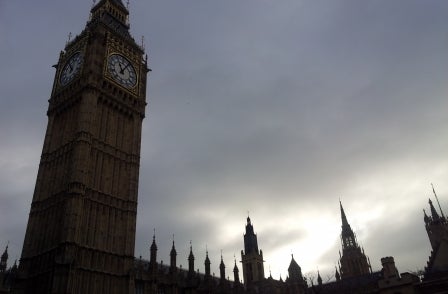
Rebel peers may have scuppered the long-awaited Defamation Bill by adding a ‘Leveson law’ amendment to it this week.
Libel reform campaigners fear the Government may drop the Defamation Bill from the schedule rather than risk allowing it a final reading in the Commons which would stand a high risk of being defeated with the help of Tory rebels.
The Opposition amendment to the bill provides for the creation of a libel claims arbitration service to provide a low-cost claims resolution service for members of a new independent press regulator.
The amendment states that the arbitration service, and new press regulator, would be overseen by “Recognition Commission” under the Lord Chief Justice.
The law also suggested that in situations where publications who refuse to use the arbitration service are sued the court could award exemplary damages against them.
And crucially the bill would appear to enshrine in law a requirement for prior-notification on the part of publications. It states that exemplary damages could also be awarded if a defendant had not “first sought advice from a recognised Independent Regulatory Board before publication”.
This could be interpreted as giving the new statutory press regulator powers to effectively censor the press.
The Libel Reform Campaign has urged the government not to drop the Defamation Bill.
The only hope of saving it may lie with the Government quickly establishing cross-party support for its plan to recognise a new press regulator via Royal Charter.
Those plans are set to be put forward next week – meaning a decisive showdown on the future of press regulation is likely to happen in the coming weeks.
Meanwhile, industry discussions around creating a new contract-based press regulator which is “Leveson compliant” are said to be ongoing.
But there remains considerable resistance to the creation of an arbitration arm, particularly from regional press publishers who fear it would mean financial damages would be brought into complaints that are currently settled with free PCC-brokered corrections or apologies.
As it stands, the Defamation Bill would tackle libel tourism, strengthen protection for journalism in the public interest and make it harder for companies to sue for libel by saying that they must prove substantial financial harm.
The three main groups involved in the Libel Reform Campaign yesterday issued statements condemning the House of Lords arbitration amendment.
Chief executive of Index on Censorship Kirsty Hughes said: “It’s unacceptable for Labour Peers to hold the government to ransom by injecting statutory regulation of the press into a vitally needed Defamation Bill that is meant to strengthen freedom of expression. These two very different issues should be dealt with separately. The government must not drop the Defamation Bill, but continue the all-party talks on Leveson.”
Managing director of Sense About Science Tracey Brown said: “We and thousands of others have campaigned for 3 years to stop the libel laws’ bullying and chilling effects on discussions about health, scientific research, consumer safety, history and human rights. We’ve come so close but we can’t risk waiting another generation to get this right if the government drops the Bill.”
Director of English PEN Jo Glanville said: “The amendment to the Bill which was introduced right at the last minute by Lords, with no debate in the House of Commons, will introduce a requirement for defendants to seek advice from a ‘press board’ before publication. This would chill the press and free speech and is exactly what we’ve tried to avoid in the Defamation Bill. The government must reject these amendments and continue with the Bill.”
Email pged@pressgazette.co.uk to point out mistakes, provide story tips or send in a letter for publication on our "Letters Page" blog
